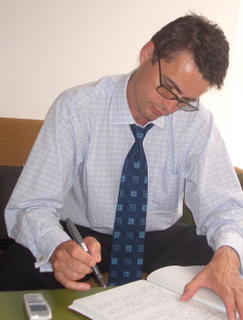 The SMH reports that private video camera surveillance systems are being set up by Sydney-siders to spy on and even intimidate their neighbours. In his report to Parliament the acting privacy Commissioner John Dickie has highlighted to proliferation of cameras in the private domain and the lack of ability those affected by them have for legal recourse and protection.
The SMH reports that private video camera surveillance systems are being set up by Sydney-siders to spy on and even intimidate their neighbours. In his report to Parliament the acting privacy Commissioner John Dickie has highlighted to proliferation of cameras in the private domain and the lack of ability those affected by them have for legal recourse and protection.Mr Dickie said many complaints involved multiple cameras, including one incident in which a household set up six cameras to spy on the neighbouring property. The commissioner's annual report, tabled in Parliament last week, said the practice had increased but police and councils were had no remedy for such complaints."The activity seems to fall between the cracks of existing laws," the report said. "It is an area of disputation which ought not be allowed to continue without some recourse being available."
It's not clear if Councils have the ability to protect privacy in these circumstances. As a Councillor I have previously expressed concerns about private CCTV installed over the public domain - often a requirement of a development consent. Walk along many Sydney streets and private cameras will film you from hotel and club awnings and convenience store doorways often streaming back to unknown control rooms or recorders. I acknowledge the legitimate security role these cameras play and the assistance they often provide to Police investigating crimes. However their installation and management should be subject to conditions or protocols that protect privacy and guarantee the responsible management of the images and any feed.
We have already seen images of actors in brawls or women in revealing fashions offered for sale to the media and on the internet. There is growing community concern about the filming of children and juvenile's for inappropriate purposes. A number of inner city apartment blocks have adopted the growing trend to install CCTV within building common areas (eg carparks, doorways, rubbish areas and halls) and feed the live images back to all occupants in the building via their television sets. The developers claim that this allows every resident to be an unpaid security guard. Attractive as this may seem on face value - to think that a building busy-body is sitting in their lounge room watching your every move is at least disturbing.
Council's network of cameras covering much of the CBD are protected by a strict set of protocols that can be adapted for other camera systems. With regard to cameras installed in the private domain and filming neighbours, I suspect a legitimate need to apply for a Development Consent and will ask Council at the next meeting to investigate and report how we can better regulate the proliferation of private cameras to safeguard privacy. People affected by the potential intrusion of cameras have a right to object and a level of protection. If Council's are powerless to regulate CCTV then parliament needs to consider an amendment to the planning laws. Read more

No comments:
Post a Comment